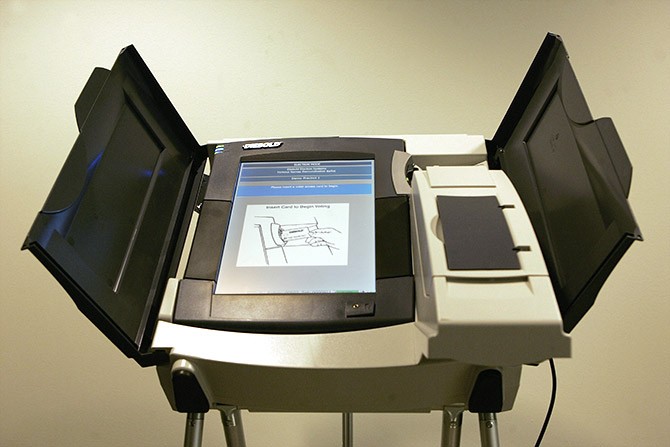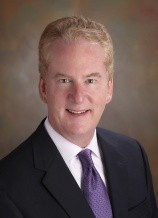If the new mortgage rate for first-time home-buyers in Shelby County has gone up of late — and it has, a fact important as a juicer for the economy as a whole — much of the credit for that belongs to Ralph Perrey, executive director of the Tennessee Housing Development Agency (THDA), a state agency whose reason for being is to spur such growth.
As Perrey put it on a visit to Memphis on Monday, “The economy comes back when housing comes back, and housing comes back when the first-time buyer returns to the market.”
After years of explosive housing growth in the Nashville area, particularly in the state capital’s surrounding, so-called “donut” counties, Perrey’s mission just now is to ramp up home-buying in West Tennessee and East Tennessee to an equivalent level.
At this point, about 20 percent of THDA’s mortgage business is in Memphis. Up until now, the surrounding donut counties have accounted for a majority of it.
THDA, which was created by the state of Tennessee some 43 years ago, is self-funding and operates within the context of the general housing market and, as an issuer of mortgage loans, plays by the rules of that market. But it serves an overtly public purpose, not only accelerating the growth and accessibility of housing but applying its profits to other useful ends.
Perrey, a baseball fan who watches games wherever he goes, dissertated on the functions of his office at AutoZone Park Monday night, between pitches of the game between the Memphis Redbirds and the Colorado Springs Sky Sox.
“What we hope to do is build our business,” Perrey said. “With every additional loan, if we do our work well, it helps us support more activities through our housing trust fund. We manage nine different federal programs. Here in Memphis, there’s a lot of interest in what you can do to eliminate blight and get rid of eyesores.
“We’re negotiating with the U.S. Department of the Treasury to use some leftover foreclosure [-prevention] money. We committed all of it we had, but some of it, an unneeded portion, was returned to us. We think, by the fall, we’ll have a few million dollars to use against blight, and that could be very impactful to certain areas of Memphis.”
Before heading to the ball park, Perrey had spent an afternoon hobnobbing with mortgage bankers from the tri-state area, who are holding their annual convention here. “As we tell people, we are being more aggressive in engaging with lenders. That combination has really made a difference. Our loan product is up 58 percent compared to last year,” Perrey said.
THDA’s “main line,” explained Perrey, is to finance single-family mortgages, which the agency buys from the originating lenders and then administers, with a marginal savings for the home-buyer. “For the lenders, it’s a market-expanding opportunity. We give them a product they can use for customers they might otherwise say no to.” The term “public-private partnership” has gotten a pretty good workout in policy circles in recent years, and it adequately describes the way THDA operates.
“We provide backup,” is how Perrey puts it. “We’re not a poverty program, but we do make it possible for people of limited means to have their own homes, so long as they can demonstrate a certain financial capacity. But we’re not just for poor people.”
He said that THDA also facilitates loans for people well into what could be described as middle class, such as start-up couples “who may think they don’t have a good enough credit score or are worried about the down payment.”
At present, TDHA can offer a 30-year fixed-rate loan at a 3.99 percentage rate, marginally better than the market at large, and can also offer down-payment closing assistance.
In other words, THDA doesn’t do hand-outs, but it provides a hand up for people in all economic circumstances who, for various reasons, might need a bit of help in getting what they want out of the housing market. Because the agency’s standards for lending include a demonstration of solvency, it has a very low delinquency rate with its loans. “We think there are a lot of people in Tennessee who would qualify for a THDA mortgage, and that’s why we’re here,” said Perrey, who said TDHA will offer a newly configured loan package sometime this summer especially tailored for credit unions and other lenders who may not deal with FHA loans per se.
Perrey is a product of Republican politics, having left a career as a radio newsman to serve former Congressman and Governor Don Sundquist as his entrée into government. But he sees himself as working within the stream of a bipartisan tradition. “There isn’t that much difference in how Republican and Democratic administrations have dealt with THDA. There’s been a great deal of continuity. Everybody likes housing.”
It’s nice to know, especially these days, that some aspects of government are above politics. As Ralph Perrey tells it, the Tennessee Housing Development Agency is one of them.
• Hackles were raised in Democratic Party circles in 2014 over former party Chairman Sidney Chism‘s overt and enthusiastic support of the reelection of Sheriff Bill Oldham, who ran as the Republican nominee. The Shelby County Democratic Executive Committee went so far as to formally censure Chism for not only endorsing Oldham but for allegedly attempting to dissuade the eventual Democratic candidate, Bennie Cobb, from running against him.
Now Chism, a former Shelby County commissioner who was term-limited and could not run again in 2014, is employed by Oldham as a “public information specialist,” and Chism is once again undergoing scrutiny. As part of the commission’s preliminary budget process, the Sheriff’s Department presented its financial prospectus back in mid-April, but the department’s employment of Chism and former county preparedness director, Bob Nations, prompted a callback before the commission’s budget committee on Wednesday of this week.
Budget Committee Chair Heidi Shafer said that further information was needed in the case of both Chism and Nations, the latter of whom, she said, had not become fully vested for pension purposes but would achieve that status in the sheriff’s employ.
“We just want to know if these jobs are really needed in light of the substantial increases the Sheriff’s Departent is seeking elsewhere,” said Shafer.
Also subject to a callback for further accounting on Wednesday were Juvenile Court and the Shelby County Election Commission. Shafer professed a concern over a request for $200,000 as a consultant’s fee to look into revising current election procedures, as well as the Election Commission’s request for a six percent raise in compensation for its emplyees.
“Not many Shelby Countians would find it easy to believe that the Election Commission deserves merit raises,” Shafer said.
• As of Friday, persons interested in filling the Super District, Position 2 seat (if not the shoes) of influential Councilman Shea Flinn, who has resigned, were able to pick up papers at the council office. Applications are due by Thursday, May 14th, and the remaining 12 council members will choose an interim replacement for Flinn’s seat on Tuesday, May 19th.
It will take a majority of seven votes to name the fill-in council member, and that could result in several ballots.
Indications are that all or nearly all of the individuals who had previously drawn petitions to run for the seat in the October 8th election will attempt to gain the interim nod as well. It’s one of those nothing-to-lose situations.
But, given the fact that sitting council members may not wish to offend a possible future colleague by making the wrong choice, they may see as a more appealing option the idea of choosing someone who does not intend to run for the seat in the regular city election.
Some of those who have already indicated they are candidates for the interim position only are lawyer Alan Crone and activists Frank Triplett and Diane Cambron. That list is sure to grow between now and May 14th.
 Greg Cravens
Greg Cravens  Jackson Baker
Jackson Baker 



 Greg Cravens
Greg Cravens